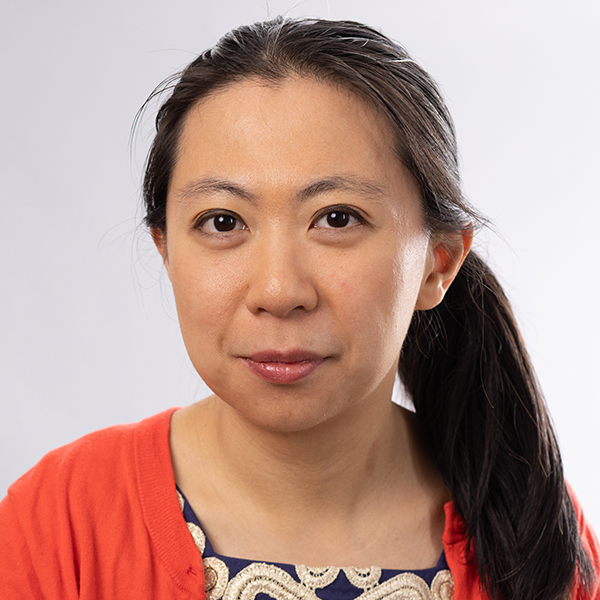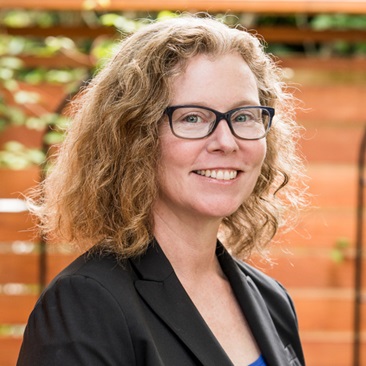full-time faculty teaching and conducting research in political science
of Maxwell faculty conduct research focused outside of the U.S.
graduate students in residence; fewer than 12 admitted each year
Undergraduate Studies
Graduate Studies

I am Maxwell.
Civic engagement is a core value for me. I have always aspired to help the communities I’m from.” Mazaher Kaila, a Maxwell alumna and third-year student at Syracuse University's College of Law, moved with her family from Sudan to Central New York when she was four years old. “I realized that to make meaningful change in society, I needed to understand the systems that power it—government and politics—and that’s insight I would gain by studying political science.”
Mazaher Kaila ’19, L’22
political science, law
IDJC Launches New Poll With Ipsos That Tracks Attitudes Toward Civic Engagement, Democracy
July 1, 2024
SU News
Syracuse University’s Institute for Democracy, Journalism and Citizenship (IDJC), in partnership with Ipsos, is launching a new poll that measures attitudes toward civic engagement, democracy and news and information.
Each wave of findings from the Syracuse University-Ipsos American Identity poll is based on interviews with roughly 1,000 U.S. adults conducted by Ipsos through its probability-based KnowledgePanel.
Initial findings released Thursday found that Republicans were more invested in watching the first presidential debate between President Biden and former President Trump than Democrats or independents.
Based on a survey conducted May 17-19, 75% of Republicans said they were likely to watch the debate, compared with 61% of Democrats and 58% of independents.
“This project will help IDJC researchers expand our understanding of media consumption and an increasingly polarized electorate in a rapidly changing news climate,” says Margaret Talev, Kramer Director of the IDJC and professor of practice of magazine, news and digital journalism at the S.I. Newhouse School of Public Communications.
The IDJC is a joint University initiative of the Newhouse School and the Maxwell School of Citizenship and Public Affairs. Based in Washington, D.C., the institute engages in nonpartisan research, teaching and public dialogue aimed at strengthening trust in news media, governance and society.
“While many polls are focused on the horse race, this gives us the opportunity to understand how this election cycle is shaping Americans’ perspectives about patriotism, partisanship and the importance of democracy,” says Johanna Dunaway, IDJC research director and professor of political science at Maxwell.
Joshua Darr, IDJC senior researcher, says “Our hope is that we can learn more about the relationships between identity, trust in media and attitudes toward democracy that shape the stakes of the election—not merely try to predict the election.” Darr also is an associate professor of communications at Newhouse.
The IDJC also offers foundational courses taught in the nation’s capital in civics, media literacy and ethics, and works with the Maxwell and Newhouse schools to facilitate internships, networking opportunities with alumni and other educational experiences for Syracuse University students.
The polling partnership with Ipsos will provide another avenue to teach students about survey research and demographic trends in society, Talev says.
“These are such important tools for aspiring journalists to have in their skillset,” she says. “It’s critical for reporters and writers to understand how voters feel and perceive developments on the trail to cover the campaign with proper context and authority.”
Talev also is a senior contributor at Axios and wrote about the poll Thursday.
By Genaro Armas
Related News
Commentary

Aug 1, 2024
Commentary

Jul 31, 2024
Commentary

Jul 30, 2024
BaoBao Zhang Joins First Cohort of AI2050 Early Career Fellows
One of only 15 scholars chosen from across the U.S., Zhang will receive up to $200,000 in research funding over the next two years. Zhang will use the funding to partner with the nonprofit, non-partisan Center for New Democratic Processes to test whether public participation in AI governance is increased through the creation of public assemblies, known as “deliberative democracy workshops.”
Baobao Zhang
Assistant Professor, Political Science Department

IDJC Launches New Poll With Ipsos That Tracks Attitudes Toward Civic Engagement, Democracy
July 1, 2024
SU News
Syracuse University’s Institute for Democracy, Journalism and Citizenship (IDJC), in partnership with Ipsos, is launching a new poll that measures attitudes toward civic engagement, democracy and news and information.
Each wave of findings from the Syracuse University-Ipsos American Identity poll is based on interviews with roughly 1,000 U.S. adults conducted by Ipsos through its probability-based KnowledgePanel.
Initial findings released Thursday found that Republicans were more invested in watching the first presidential debate between President Biden and former President Trump than Democrats or independents.
Based on a survey conducted May 17-19, 75% of Republicans said they were likely to watch the debate, compared with 61% of Democrats and 58% of independents.
“This project will help IDJC researchers expand our understanding of media consumption and an increasingly polarized electorate in a rapidly changing news climate,” says Margaret Talev, Kramer Director of the IDJC and professor of practice of magazine, news and digital journalism at the S.I. Newhouse School of Public Communications.
The IDJC is a joint University initiative of the Newhouse School and the Maxwell School of Citizenship and Public Affairs. Based in Washington, D.C., the institute engages in nonpartisan research, teaching and public dialogue aimed at strengthening trust in news media, governance and society.
“While many polls are focused on the horse race, this gives us the opportunity to understand how this election cycle is shaping Americans’ perspectives about patriotism, partisanship and the importance of democracy,” says Johanna Dunaway, IDJC research director and professor of political science at Maxwell.
Joshua Darr, IDJC senior researcher, says “Our hope is that we can learn more about the relationships between identity, trust in media and attitudes toward democracy that shape the stakes of the election—not merely try to predict the election.” Darr also is an associate professor of communications at Newhouse.
The IDJC also offers foundational courses taught in the nation’s capital in civics, media literacy and ethics, and works with the Maxwell and Newhouse schools to facilitate internships, networking opportunities with alumni and other educational experiences for Syracuse University students.
The polling partnership with Ipsos will provide another avenue to teach students about survey research and demographic trends in society, Talev says.
“These are such important tools for aspiring journalists to have in their skillset,” she says. “It’s critical for reporters and writers to understand how voters feel and perceive developments on the trail to cover the campaign with proper context and authority.”
Talev also is a senior contributor at Axios and wrote about the poll Thursday.
By Genaro Armas
Related News
Commentary

Aug 1, 2024
Commentary

Jul 31, 2024
Commentary

Jul 30, 2024
